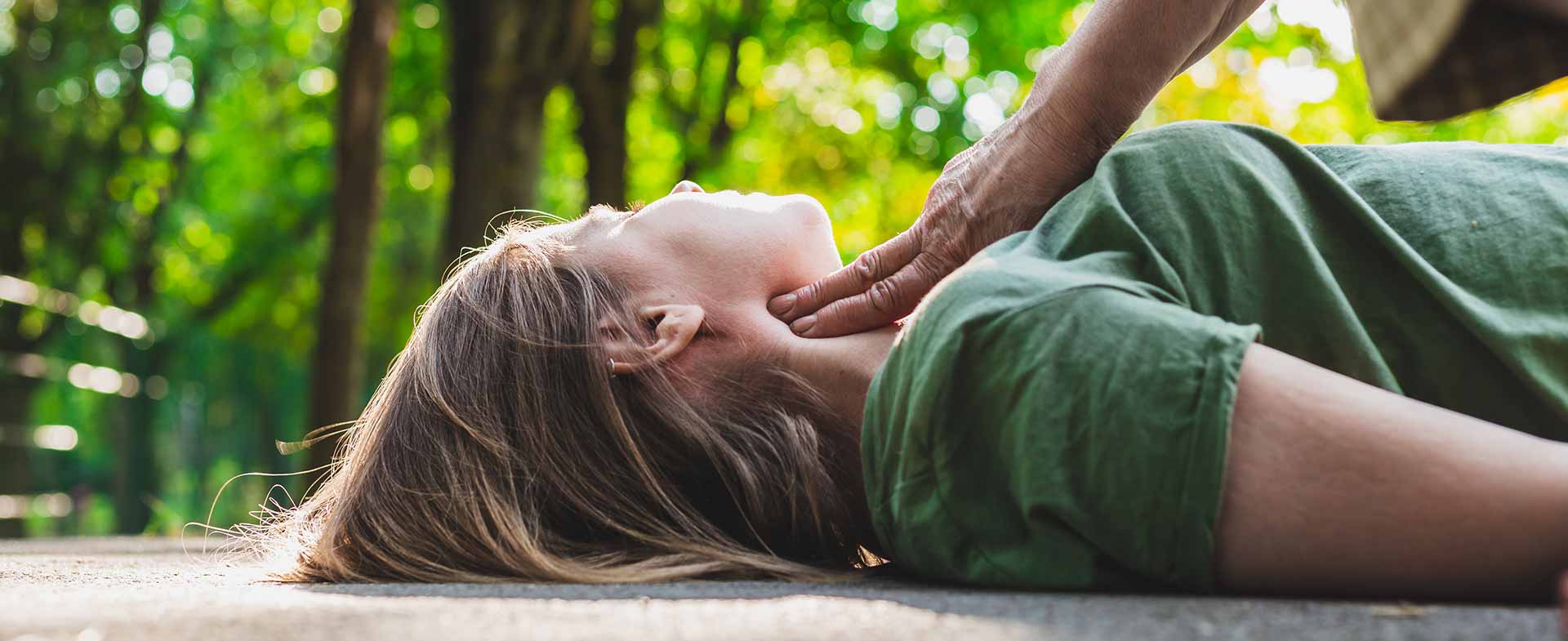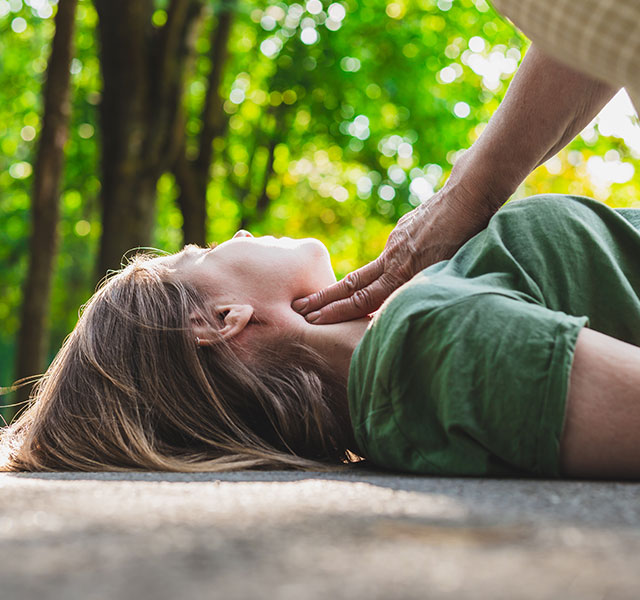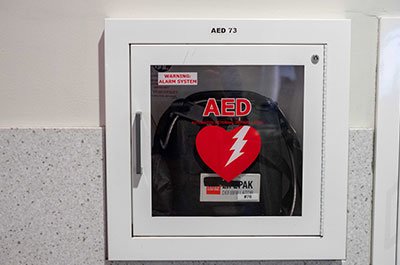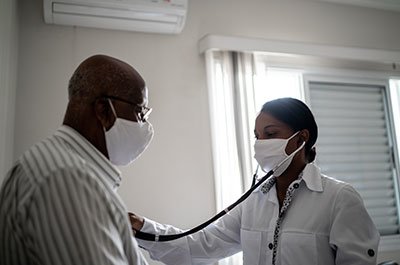Although it can be a terrifying thing to think about, it is important to know how to recognize and respond to a sudden cardiac arrest (SCA). Timing is everything, and acting quickly truly could be the difference between life and death.
Sudden cardiac arrest is a medical emergency that is a result of a sudden electrical malfunction. Unlike a heart attack, where the heart may continue to beat and only the blood supply to the heart is compromised, SCA causes the heart to stop beating entirely. Because a sudden cardiac arrest results in an abrupt, unexpected loss of heart function, breathing and consciousness, blood circulation to the brain and other vital organs cease instantly. If not responded to immediately, structural brain damage, or even death, can result in a matter of minutes.
One of the leading causes of death among American adults is sudden cardiac arrest, including about 365,000 incidents per year, 95 percent of which are fatal.
“Sudden cardiac arrest claims one life every 90 seconds,” says Henry Ford cardiologist Bryan Zweig, M.D.
What to Do If You Witness Someone in Sudden Cardiac Arrest
Given the severity and sudden nature of sudden cardiac arrest, response time and tactics are crucial to survival. The only effective treatment for an SCA is cardiopulmonary resuscitation (CPR) followed by the use of an automated external defibrillator (AED). When performed quickly enough, the tandem of CPR and AED increase survival rates to 38%. “For every minute that passes without treatment, survival rates decrease between 7% and 10%,” says Dr. Zweig.
Should you witness anyone who you believe has just suffered from a SCA, you must take action, as quickly as possible:
- Confirm the incident as an SCA. Watch for a sudden collapse or fainting. Someone who has just experienced sudden cardiac arrest will lose consciousness and fall to the ground. Check for a pulse and breathing while attempting to determine if the person is alert.
- Call 911. Once you determine the person has suffered an SCA, this should be your first priority. Immediate medical attention is crucial to their survival. If available, have another bystander call 911 while you stay with the person.
- Locate an AED and use it. Many public places such as schools, malls, community centers, airports, golf courses, fitness clubs and gyms are equipped with AEDs. Look for signs featuring a red heart with a white lightning bolt inside of it. The AED will verbally instruct you how to hook it up to the person so it can analyze their heartbeat and deliver a shock, as needed. Afterward, conduct CPR for two minutes with roughly 100 compressions per minute. Ensure you are pressing down a minimum of two inches and allowing the chest to fully recoil. If there is still no pulse, administer another shock with AED and repeat the process until first responders arrive.
- Administer CPR. This should be initiated as soon as possible after SCA is suspected. Ideally, if another bystander is present, they can call 911 and look for an AED while CPR is initiated. If an AED is not available, or the AED does not recommend another shock, begin to administer CPR until first responders arrive. Again, ensure you are pressing down a minimum of two inches and allowing the chest to fully recoil, at a rate of roughly 100 compressions per minute.
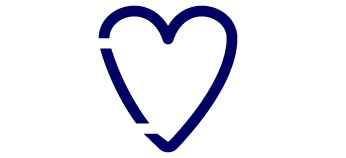
Although sudden cardiac arrests are typically both immediate and unexpected, recent studies of SCA survivors have identified several common warning signs:
- Dizziness
- Unexplained shortness of breath
- Chest pains
- Seizures (usually in the arms or legs)
- Feeling nauseated or vomiting about an hour before the event
As for what causes an SCA, most incidents are usually the result of, or preceded by, pre-existing heart conditions such as:
- Coronary artery disease
- Enlarged heart (cardiomyopathy)
- Valvular heart disease
- Congenital heart disease
- Electrical problems in the heart
Each of these conditions has the potential to create abnormalities within the heart’s rhythm, referred to as arrhythmia, which is usually the immediate cause of an SCA.
“Other issues such as heart attack, poor heart function and physical stress can also lead to heart rhythm problems,” says Dr. Zweig. “A drug overdose or other toxins in someone’s system are also known to be causes of some cases of sudden cardiac arrest.”
Sudden cardiac arrests can be terrifying but time and response are crucial, so it is important to know what steps you should take if you witness anyone having a sudden cardiac arrest.
At the first sign of a sudden cardiac arrest, call 911.
Reviewed by Dr. Bryan Zweig, a cardiologist who sees patients at Henry Ford Medical Center - Fairlane.
